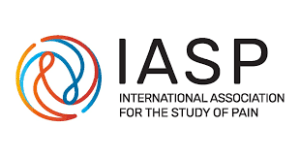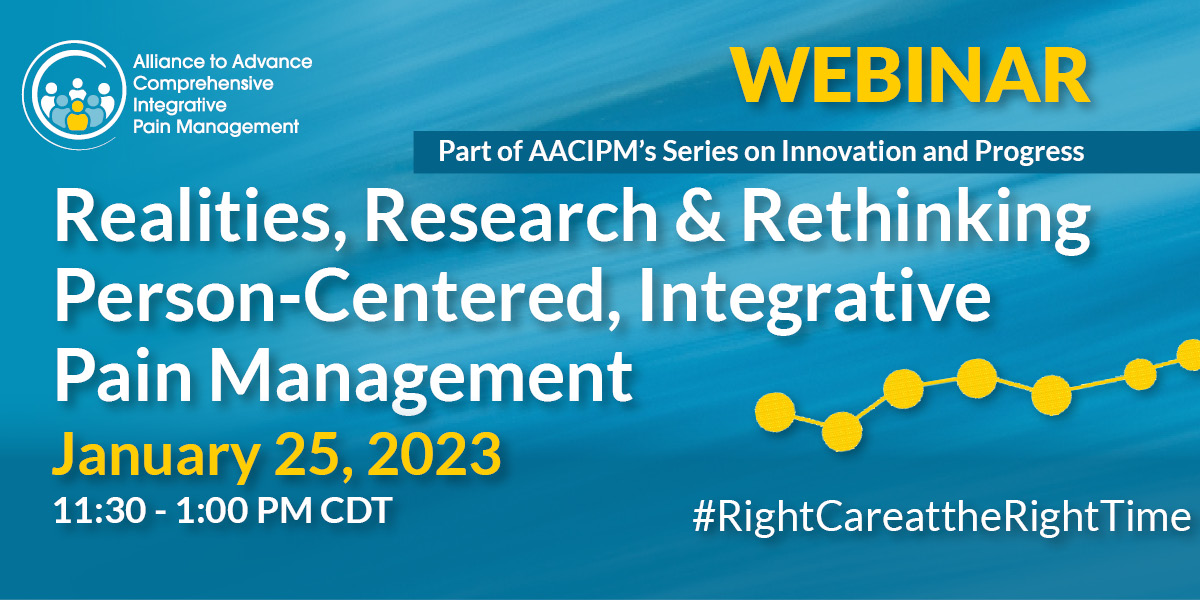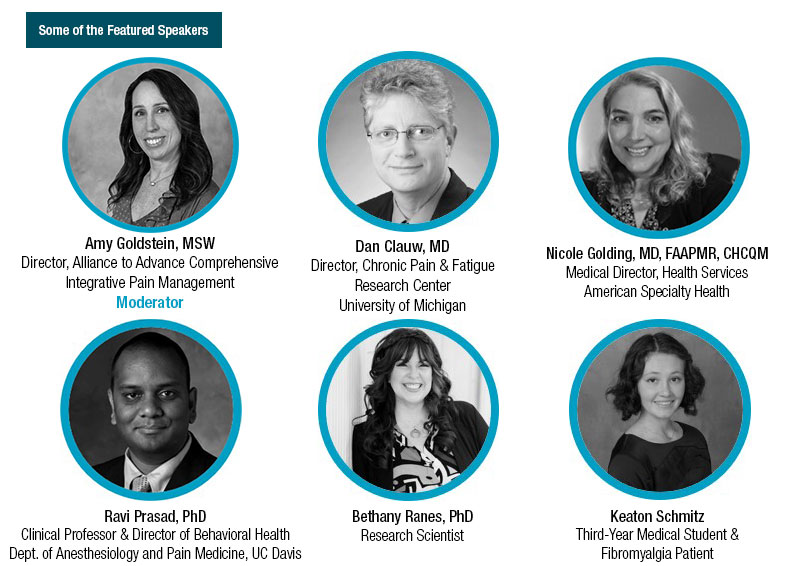IASP Announces Global Year for Integrative Pain Care
AACIPM is Asking For Feedback on a Possible Research-Related Advocacy Goal
 The International Association for the Study of Pain (IASP) has named 2023 the Global Year for Integrative Pain Care. The goal of IASP’s Global Year advocacy campaign is to, each year, focus on a special aspect of pain and to increase awareness within the pain community and beyond. The aim of this year’s campaign is to increase the awareness of clinicians, scientists, and the public about the use of an integrative pain care approach, which emphasizes non-drug, self-management care.
The International Association for the Study of Pain (IASP) has named 2023 the Global Year for Integrative Pain Care. The goal of IASP’s Global Year advocacy campaign is to, each year, focus on a special aspect of pain and to increase awareness within the pain community and beyond. The aim of this year’s campaign is to increase the awareness of clinicians, scientists, and the public about the use of an integrative pain care approach, which emphasizes non-drug, self-management care.
IASP’s campaign has a number of goals, including: clearly defining “Integrative Pain Care”; examining how various healthcare models can be integrated into a comprehensive pain care plan; and, appraising the quality of evidence for various non-drug approaches to pain care, either provided alone or in combination with other approaches.
AACIPM is connecting with some IASP leaders to discuss the possibilities of more meaningful collaboration throughout the year. We believe that gathering multiple stakeholder organizations together in common interest will have a greater impact than any of us can try to do alone, or with only limited networks.
To that end, please give feedback on what is in the box below!
Collaboration is Key – An Advocacy Opportunity in 2023
The challenges facing our abilities to advance whole person, evidence-based, multimodal, integrative pain management are too big for any one stakeholder or even stakeholder group to solve alone. The Alliance to Advance Comprehensive Integrative Pain Management is working to connect the dots and move the needle!
Calling those with an interest in RESEARCH and COLLABORATION! We would love to hear your thoughts on the issue/need written below that has been identified through initial stakeholder feedback. Do you agree or disagree that this should be addressed? Does it lack important perspective? Other feedback to improve?
Issue/Need – For Your Feedback:
We need more accessible Funding Opportunity Announcements (FOA) that also include promotion of payer/provider partnerships that test translation to clinic and real-world settings when evaluating integrative pain care for all people. Furthermore, related to these funding requests, there should not be mandatory inclusion of basic science/animal studies if basic science would not improve the impact of the study—because basic science isn’t always helpful/needed in this area.
Innovation, non-traditional partnerships, and payer/provider partnerships have proven successful to address the complexities while advancing access to whole person, integrative pain care for all. To this end, we need more opportunities for building networks, alliances, engagement, and collaboration across stakeholders to promote connections that would normally not occur. Researchers and other stakeholders are often siloed, and connecting the dots is an imperative to promote equitable access to whole person, integrative pain management.
Do you agree or disagree that this should be addressed? Does it lack important perspective? Will this address issues around equity? Other feedback to improve?

Informative Webinar Recording is Available
On January 25, AACIPM hosted our second webinar, Realities, Research and Rethinking Person-Centered, Integrative Pain Management, in our Innovation and Progress series. It was a success thanks to our fabulous presenters and everyone who registered and participated in the offering.
This brought together perspectives from people with pain, research, clinical practice and payers to discuss innovation and progress in their field and how to keep people with pain at the center of this care.
We learned more about things like:
- A new program from a payer that brings integrative therapies to a Medicaid population
- A person living with fibromyalgia who is a 3rd year medical student
- Details about the relatively dramatic increase in the evidence base broadly for integrative therapies in pain
- Emerging therapies and what this looks like in the brain
- Considerations of how to scale and sustain this care for all
One participant commented afterwards: “This was both informative and illuminating. I am grateful to the presenters and for the evidence based bench to bedside they highlighted.”
If you haven’t completed your survey, please click the button below now. Your feedback helps to shape our future plans – and we’re excited to hear from you!

AACIPM Presents Policy & Advocacy Tools for Advancing Integrative Care to Andrew Weil Fellowship Alumni
 AACIPM was honored to collaborate with the Andrew Weil Fellowship program, having recently presented to their fellowship alumni about engaging in policy and advocacy. You can view more information about this meeting and agenda here.
AACIPM was honored to collaborate with the Andrew Weil Fellowship program, having recently presented to their fellowship alumni about engaging in policy and advocacy. You can view more information about this meeting and agenda here.
Amy Goldstein, Director of AACIPM, presented Advocacy: Local State & National Policy Changes – The Imperative for Integrative Practitioners to Engage in Policy & Advocacy. This session provided practitioners an understanding of the current coverage landscape, policy gaps that must be addressed if care delivery is to improve, and the ethical obligation that healthcare providers have to participate in the formation of healthcare policy. Practitioners learned about the types of policies and policymakers that affect access to integrative care, the moral and ethical imperative for health care providers to participate in the creation of health care policy, and options for engaging in advocacy efforts related to expanding access to guideline-concordant integrative care.
Innovation Challenge – Deadline Sunday, 2/5!
 The American Academy of Pain Medicine (AAPM) is continuing a partnership with MIT Hacking Medicine to present the 2nd Annual Pain Innovation Challenge at the AAPM Annual Meeting at the Fort Lauderdale Marriott Harbor Beach Resort & Spa on March 25, 2023. The goal is to identify startups, aspiring healthcare entrepreneurs, researchers, and teams with solutions and technologies to improve the lives of people living with pain across all specialties and fields of medicine.
The American Academy of Pain Medicine (AAPM) is continuing a partnership with MIT Hacking Medicine to present the 2nd Annual Pain Innovation Challenge at the AAPM Annual Meeting at the Fort Lauderdale Marriott Harbor Beach Resort & Spa on March 25, 2023. The goal is to identify startups, aspiring healthcare entrepreneurs, researchers, and teams with solutions and technologies to improve the lives of people living with pain across all specialties and fields of medicine.
AACIPM’s director, Amy Goldstein will serve as a judge for this event. Submissions are due by February 5th.
Have an innovative pitch that you’d like to share – or know someone that might? Submissions are due by Sunday, February 5th.
Educational Opportunities
Academic Consortium Symposium
 The 2023 Integrative Medicine & Health Symposium, hosted by the Academic Consortium for Integrative Medicine & Health, will be meeting in-person in Chicago, Illinois from February 28 – March 2, 2023. Over the course of 2 1/2 days, you’ll find a program that is both practical and aspirational, with sessions and workshops delving into clinical, education and advocacy topics. Original scientific research will be shared through oral abstract sessions and dedicated time for poster presentations.
The 2023 Integrative Medicine & Health Symposium, hosted by the Academic Consortium for Integrative Medicine & Health, will be meeting in-person in Chicago, Illinois from February 28 – March 2, 2023. Over the course of 2 1/2 days, you’ll find a program that is both practical and aspirational, with sessions and workshops delving into clinical, education and advocacy topics. Original scientific research will be shared through oral abstract sessions and dedicated time for poster presentations.
Featured Plenary Session with Dr. Vanila Singh
The Intersection of Integrative Medicine, Health Policy and Advancing Care in Chronic Painful Conditions: Health & Healthcare Equity
Among the many excellent sessions, AACIPM is highlighting this session presented by one of our Advisory Committee Members. This session will explore the state of health policy and how integrative medicine is affecting one of the most complex and challenging aspects of various chronic painful conditions. The discussion will surround what our legislative leaders are considering and what the greater medical communities can do to educate, innovate and access care.
Presented by: Vanila Singh, MD MACM, Clinical Associate Professor, Stanford School of Medicine, Woodside, CA

Integrative Pain Management Conference
Presented by The Osher Center for Integrative Health, this conference on May 5 in Burlington, Vermont, is designed to meet the needs of an interdisciplinary health care community. All health care professionals are welcome.
Registration will open soon!
AACIPM will again be offering scholarships for healthcare providers who care for people who are underserved like last year, so please watch for more information about this.
Researchers Need Help in Studying Successful Implementation of Integrative Medical Group Visits
 While integrative pain management programs can be life-changing for patients suffering from chronic pain, all too often, these programs are not accessible to underserved patients. Integrative medical group visits (IMGV) are interventions designed specifically for low-income patients to be delivered in safety-net settings. To encourage the widespread uptake of IMGV for patients with chronic pain, researchers at UNC School of Medicine’s Program on Integrative Medicine are hoping to learn from professionals who already have experience implementing IMGV in safety-net settings. They hope to identify best practices and test these strategies to learn how to effectively implement IMGV on a wide scale.
While integrative pain management programs can be life-changing for patients suffering from chronic pain, all too often, these programs are not accessible to underserved patients. Integrative medical group visits (IMGV) are interventions designed specifically for low-income patients to be delivered in safety-net settings. To encourage the widespread uptake of IMGV for patients with chronic pain, researchers at UNC School of Medicine’s Program on Integrative Medicine are hoping to learn from professionals who already have experience implementing IMGV in safety-net settings. They hope to identify best practices and test these strategies to learn how to effectively implement IMGV on a wide scale.
Do you have experience implementing IMGV in your safety-net healthcare setting? We want to learn from you! Click here to see if you are eligible to participate in research on implementing IMGV. Participants will be compensated for their time.
National Updates
 Medicare Releases Guide for Patients on Safer Use of Opioid Pain Medication
Medicare Releases Guide for Patients on Safer Use of Opioid Pain Medication
The Centers for Medicare & Medicaid Services (CMS) have released Safer Use of Opioid Pain Medication, a guide for Medicare patients. The guide outlines medication safety checks at the pharmacy, explaining that Medicare Part D plans and pharmacists routinely check to make sure the prescription and dosage are correct when filling opioid prescriptions and that there are no interactions with other medications the patient is taking. The guide also outlines Medicare’s drug management programs, which are in place to help people at risk for prescription drug abuse.
![]() National Cancer Institute Updates PDQ Health Summary on Cancer Pain
National Cancer Institute Updates PDQ Health Summary on Cancer Pain
The National Cancer Institute has updated its PDQ Summary on cancer pain. The PDQ discusses the prevalence and causes of cancer pain, pain assessment, pharmacological therapies for pain control, modalities for pain control, general approaches to pain treatment, and more. This information summary for health professionals provides comprehensive, peer-reviewed, evidence-based information about the pathophysiology and treatment of pain, and it is intended as a resource to inform and assist clinicians in the care of their patients.
Clinical Trial Recruiting Now to Compare Perioperative Outcomes in Pain Control
A clinical trial in San Diego, California is currently recruiting 100 adult patients found to have an orthopaedic injury requiring surgery. Patients who consent to study participation will be randomized to receive either the multimodal pain management protocol or standard oral hydrocodone-acetaminophen for post-operative pain management. Data on opioid usage, pain control, and functional status will be collected for each participant. After 3 years of data collection, investigators will analyze this data to provide further insight in determining appropriateness of pain regimens that reduce the overall opioid consumption.
ICYMI
Congress has passed the NOPAIN Act in a direct push to address outdated federal reimbursement policies in an effort to combat the opioid crisis through increased utilization of non-opioid pain management approaches.
![]() The HEAL Initiative seeks to fund the development of therapies and technologies directed at enhanced pain management. This funding opportunity is focused on the development of new non-addictive medications and devices and objective pain measurement and on new screening tools and models focused specifically on pain and development of pain therapies. Applications will be accepted through April 2025.
The HEAL Initiative seeks to fund the development of therapies and technologies directed at enhanced pain management. This funding opportunity is focused on the development of new non-addictive medications and devices and objective pain measurement and on new screening tools and models focused specifically on pain and development of pain therapies. Applications will be accepted through April 2025.
State-Level Policy Action on Multimodal Pain Care

You may have seen our spotlight last month on Dr. Dave Nagel, elected as a freshman state representative in NH. Each new representative gets to sponsor a bill and his choice was one on multimodal pain management.
New Hampshire House Bill 303 had a public hearing on January 18. Co-sponsor, Rep. Nagel, has been collaborating with many groups, including the NH Medical Society, NH Chiropractic Association, and NH Acupuncture Association. Reach out if you’re interested in being more active in your own state!
Message from the Director
 I hope this issue finds your 2023 off to a good start. Wow, have we hit the ground running. I’m so excited about all the things in this newsletter and more in the works.
I hope this issue finds your 2023 off to a good start. Wow, have we hit the ground running. I’m so excited about all the things in this newsletter and more in the works.
Please take a minute to read through it all – there’s a lot of substance in this issue and opportunities to meaningfully connect dots in the advancement of whole person, evidence based, integrative pain care.
Don’t hesitate to reach out with any feedback or if you think there are other organizations that should be in our mix. You can see a list of participating groups here.
Onward and Upward!
Amy
Relevant Reading
![]()
Rising Physical Pain Is Linked to More ‘Deaths of Despair, Scientific American, January 30
Patients Flagged For Behavioral Issues Wait Longer, Get Less Care, New Study Shows, Forbes, January 28
A supportive and educational online community exists for people with chronic illnesses. They call themselves “spoonies.”, Insider, January 27
Tapping: Technique Used to Improve Physical and Emotional Health, Health News, January 26
Managing chronic pain in an appropriate, humane way, MD Linx, January 26
Brain cells gone haywire during sleep may lead to chronic pain, mouse study suggests, Live Science, January 26
Dementia-related pain: What caregivers need to know, Mayo Clinic, January 26
Fear-Avoidance Beliefs for Physical Activity Among Chronic Low Back Pain: A Multicenter Cross-Sectional Study, DovePress, January 26
Researchers compare high- and low-dose exercise therapy in patients with knee osteoarthritis, News Medical Life Sciences, January 24
How Cognitive Behavior Therapy Can Be The Solution To Your Insomnia, HealthDigest, January 21
Studies Focused on Benefits of Acupuncture, Electroacupuncture Increasing in Number in Fibromyalgia, HCP Live, January 20
What Is the Feldenkrais Method? A Detailed Scientific Guide to This Type of Somatic Movement, Everyday Health, January 19
Do we feel pain more at night?, Harvard Health, January 18
Overcoming the Gendered Pain Gap, JSTOR Daily, January 15
Spoon theory: What it is and how I use it to manage chronic illness, The Washington Post, January 14
Why Native Americans experience chronic pain more is focus of TU-based research team, Tulsa World, January 8
The differential effects of sleep deprivation on pain perception in individuals with or without chronic pain: A systematic review and meta-analysis, ScienceDirect, December 2022
Mindfulness-Based Stress Reduction vs Escitalopram for the Treatment of Adults With Anxiety Disorders, JAMA Psychiatry, November 2022
Feedback
We welcome your input! What do you like? Do you have a contribution for an upcoming newsletter? Send us your comments, suggestions, or contributions.